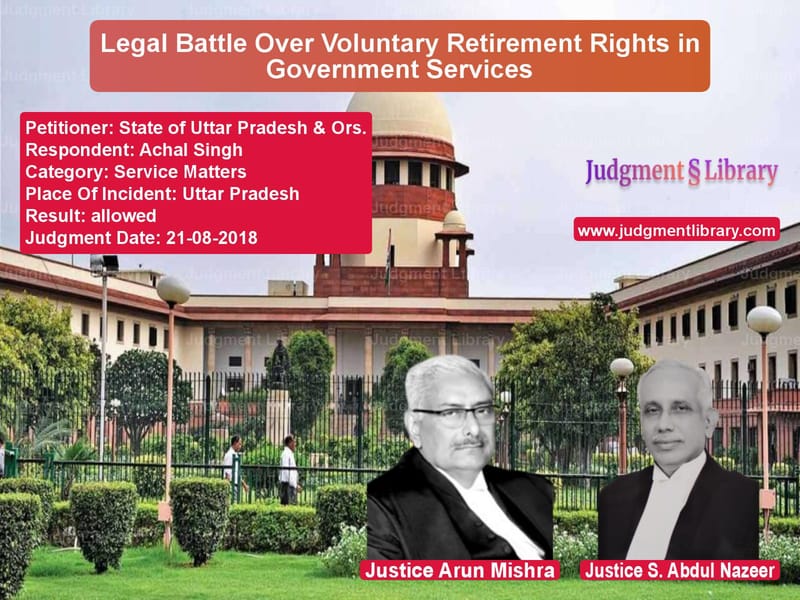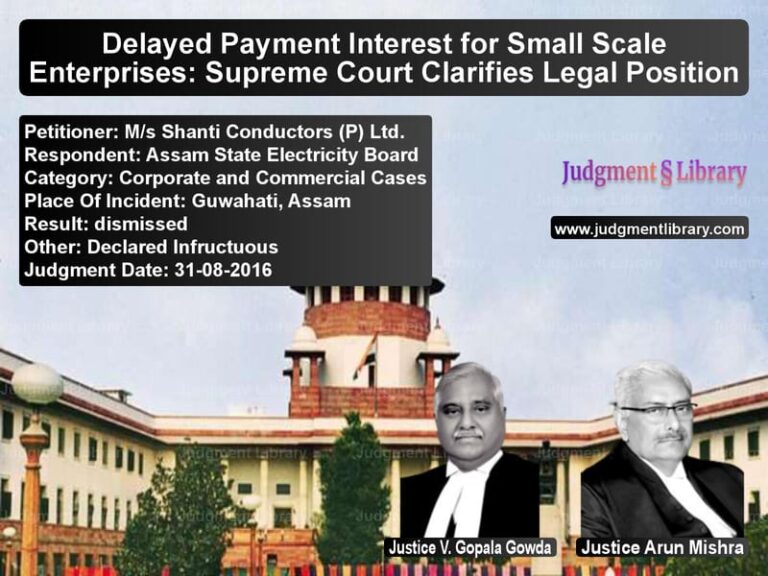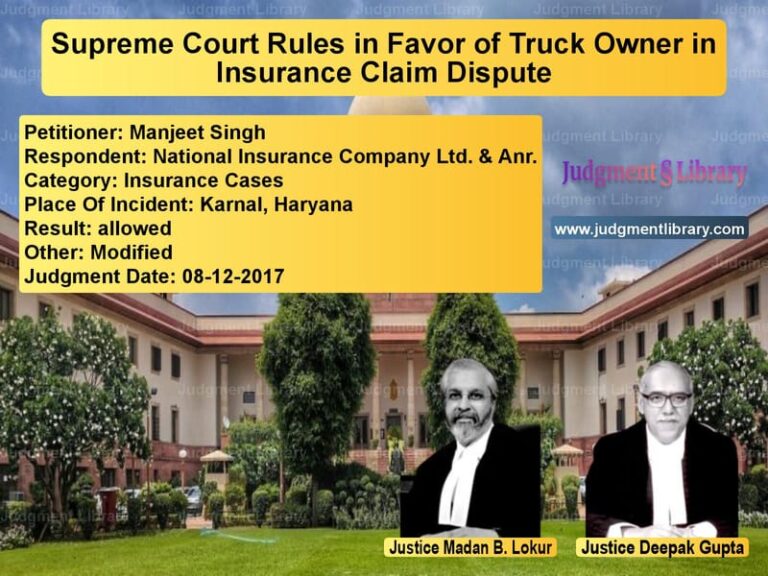Legal Battle Over Voluntary Retirement Rights in Government Services
The Supreme Court of India delivered a significant judgment in the case of State of Uttar Pradesh & Ors. vs. Achal Singh, which involved the contentious issue of voluntary retirement under the Uttar Pradesh Fundamental Rules. This case raised important legal questions regarding the rights of government employees to retire voluntarily and the discretionary power of the state to reject such requests in the public interest.
The case originated when several doctors serving in the state’s Provincial Medical Services sought voluntary retirement, citing personal reasons. Their applications were not responded to by the government, prompting them to file writ petitions in the Allahabad High Court. The High Court ruled in their favor, treating them as retired from government service on the dates specified in their applications. Aggrieved by this decision, the State of Uttar Pradesh approached the Supreme Court.
Arguments Presented by the Petitioner (State of Uttar Pradesh)
- The state argued that under Rule 56(c) of the Uttar Pradesh Fundamental Rules, an employee does not have an absolute right to retire voluntarily. The government retains the discretion to reject such applications in the public interest.
- Given the acute shortage of doctors in government hospitals, allowing voluntary retirements would adversely impact public healthcare services.
- The state relied on the explanation attached to Rule 56, which empowers the government to decline voluntary retirement requests if it deems it necessary for public welfare.
- It contended that voluntary retirement does not take effect automatically upon the expiry of the three-month notice period unless expressly approved by the appointing authority.
Arguments Presented by the Respondent (Doctors Seeking Retirement)
- The doctors asserted that once they had served a three-month notice for voluntary retirement, they were deemed to have retired, irrespective of government approval.
- They relied on the precedent set in Dinesh Chandra Sangma vs. State of Assam (1977), where the Supreme Court had held that an employee’s right to retire voluntarily cannot be unreasonably withheld.
- The doctors argued that their applications for retirement were submitted in compliance with the law, and the state’s failure to respond within the notice period meant tacit acceptance.
- They also claimed that the government’s decision to deny their retirement was arbitrary and violated their right to employment freedom.
Key Observations by the Supreme Court
- The Supreme Court emphasized that the language of Rule 56(c) differs from that of the Assam rules considered in the Dinesh Chandra Sangma case. The Uttar Pradesh rules explicitly allow the government to reject voluntary retirement requests in the public interest.
- The court recognized the severe shortage of doctors in government hospitals and the necessity of retaining experienced medical professionals in the interest of public health.
- It held that voluntary retirement is distinct from resignation, as it carries post-retirement benefits. Hence, the state has a legitimate interest in regulating the process.
- The court observed that the doctors’ argument—that their retirement became automatic after the three-month notice period—was not tenable under the rules applicable in Uttar Pradesh.
Final Judgment
The Supreme Court allowed the appeals filed by the State of Uttar Pradesh and set aside the High Court’s order. It upheld the state’s authority to decline voluntary retirement requests based on public interest considerations. The ruling reinforced that government employees cannot claim an absolute right to voluntary retirement if their services are essential for public welfare.
Conclusion
This landmark judgment clarifies the legal position on voluntary retirement for government employees, particularly in Uttar Pradesh. It establishes that while employees have the right to seek voluntary retirement, the state retains the discretion to reject such requests if deemed necessary in the public interest. This ruling is especially relevant in sectors like healthcare, where workforce shortages directly impact public services.
Petitioner Name: State of Uttar Pradesh & Ors..Respondent Name: Achal Singh.Judgment By: Justice Arun Mishra, Justice S. Abdul Nazeer.Place Of Incident: Uttar Pradesh.Judgment Date: 21-08-2018.
Don’t miss out on the full details! Download the complete judgment in PDF format below and gain valuable insights instantly!
Download Judgment: State of Uttar Prade vs Achal Singh Supreme Court of India Judgment Dated 21-08-2018.pdf
Direct Downlaod Judgment: Direct downlaod this Judgment
See all petitions in Pension and Gratuity
See all petitions in Employment Disputes
See all petitions in Public Sector Employees
See all petitions in Judgment by Arun Mishra
See all petitions in Judgment by S. Abdul Nazeer
See all petitions in allowed
See all petitions in supreme court of India judgments August 2018
See all petitions in 2018 judgments
See all posts in Service Matters Category
See all allowed petitions in Service Matters Category
See all Dismissed petitions in Service Matters Category
See all partially allowed petitions in Service Matters Category







